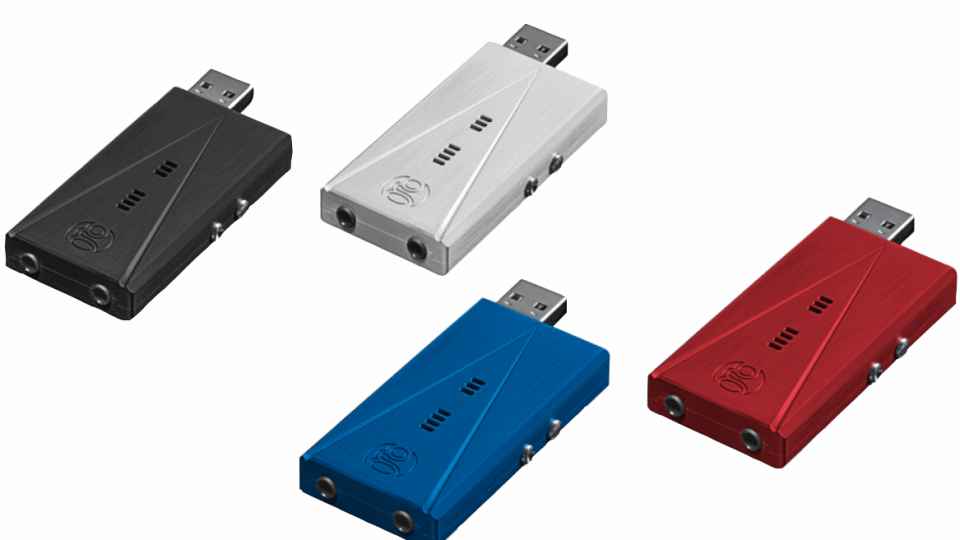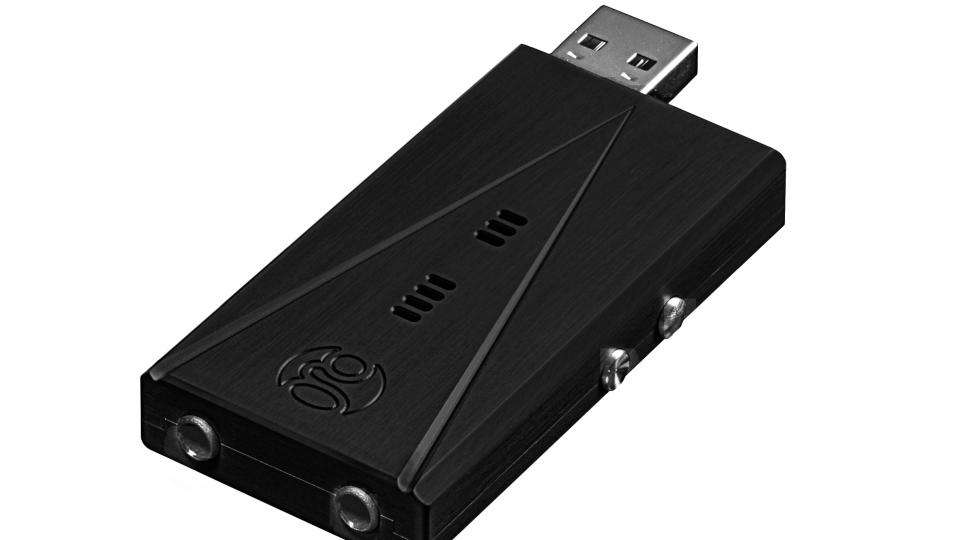Laptop and PC sound chips can often prove disappointing when you play music through them, even if you’re listening on a high-quality pair of headphones. Thankfully, it’s possible to buy external sound cards such as the Light Harmonic Geek Out, devices that are designed for high-quality music playback. The Geek Out is a small USB sound card that plugs you’re your laptop or PC via USB and then converts a digital signal to audio you can hear. The Geek Out also incorporates a headphone amp that helps overcome the shortcomings of many laptops when driving headphones with high impedance headphones even when set at maximum volume.
The Geek Out is available in different configurations based on your headphone requirements. There’s the Geek Out 450 (£199), Geek Out 720 (£249) and Geek Out 1000 (£249), the model numbers indicating how many mW of power they’re able to output. The 450 will be sufficient for powering headphones requiring less than 100 Ohms, whereas you’ll need to look at the Geek Out 720 or 1000 for anything more demanding. We reviewed the Geek Out 720.
The device is compact, and is easily small enough to slip into a pocket. One end has a USB connection for connecting the Geek Out to a computer, and the Geek Out comes with a 6in USB extension cable that proves handy for keeping the Geek Out away from other USB ports and proving an obstruction. Under intense use, the Geek Out can become very warm to the touch, although this is documented as normal behaviour.
The other end of the Geek Out has two 3.5mm headphone connections. One of the jacks is rated at 0.47 Ohms that will be sufficient for most headphones. The second jack is 47 Ohms and is intended for less efficient and more demanding pairs. Having two headphone jacks also means you can connect two pairs simultaneously if you want to share music with a second person although volume levels won’t be identical for both listeners.
Initially, the two buttons on the side of the Geek Out controlled volume independently of your connected system. However, a recent firmware update now uses these buttons to swap between Frequency Response Mode and Time Coherent Mode, which have subtly different sound characteristics. Disappointingly, the latest firmware also removes “3D Awesomifier” support, which created a wider sound when using headphones.

Inside the Geek Out is an ESS 9018K2M DAC chip that supports up to 32bit/384kHz PCM and DSD128 high-resolution audio. Chances are that you won’t regularly listen to such high quality audio, but it’s good to know that it’s possible. We tested the Geek Out with a wide array of headphones including a pair of Sennheiser Momentum On Ears and Sony MDR-10RC headphones, and we couldn’t fault the sound quality. Noticeably absent was the tell-tale audio hiss and interference you often hear with music played through poorly shielded laptop audio chips. The instruments in our test tracks were beautifully clear and crisp, and the lower frequencies in our bass-heavy hip-hop tracks were tight, with no distortion.
The Geek Out is considerably more expensive than the similar Cambridge Audio DacMagic XS , although the Geek Out does have a higher maximum bit depth and sample rate, with the Geek Out having a 32-bit bit depth compared to the DacMagic XS’s 24-bit bit depth, and a maximum sample rate of 384KHz compared to the DacMagic XS’s 98KHz sample rate. The Geek Out is expensive, and you’ll need to have a high-quality pair of headphones and a good stock of high-resolution audio files to take advantage of its super-high bit depth and sample rates to justify the expense. Although primarily designed for headphones, we also think it should have a couple of RCA outputs at this price, even if it makes the device slightly bigger. The Geek Out is a great product, but we think many people would be better off spending much less on a Cambridge Audio DacMagic XS.
|
Buying information |
|
Price including VAT |
£249 |
|
Warranty |
One-year RTB |
|
Supplier |
www.amazon.co.uk |
|
Details |
www.lhlabs.com |
|
Part code |
Geek Out 720 |


Leave a Reply